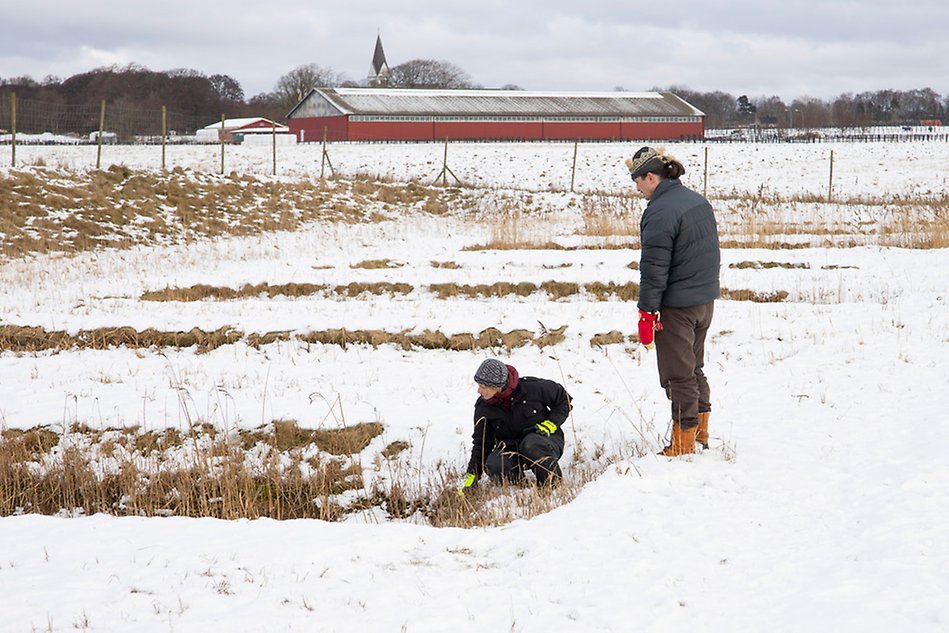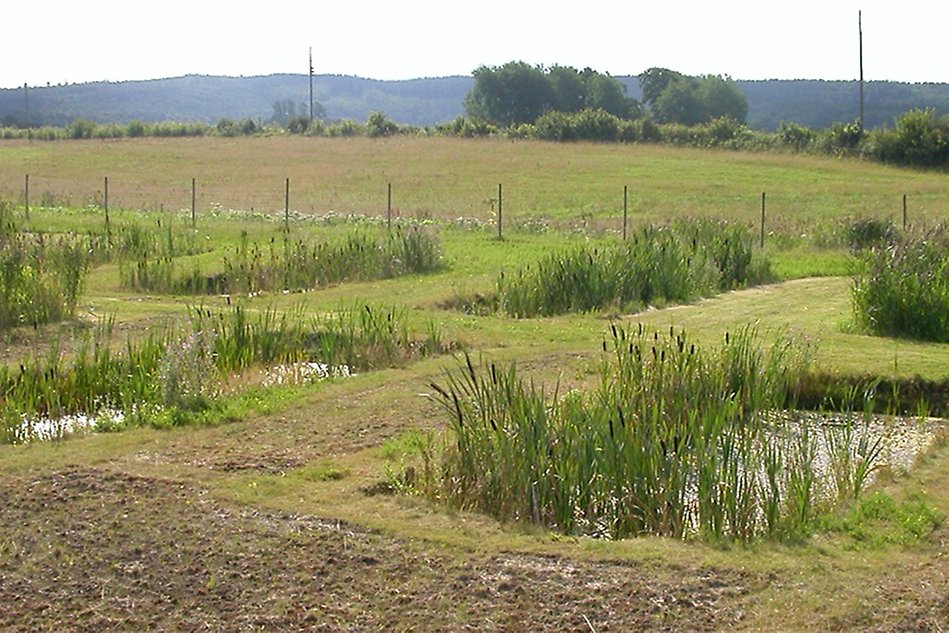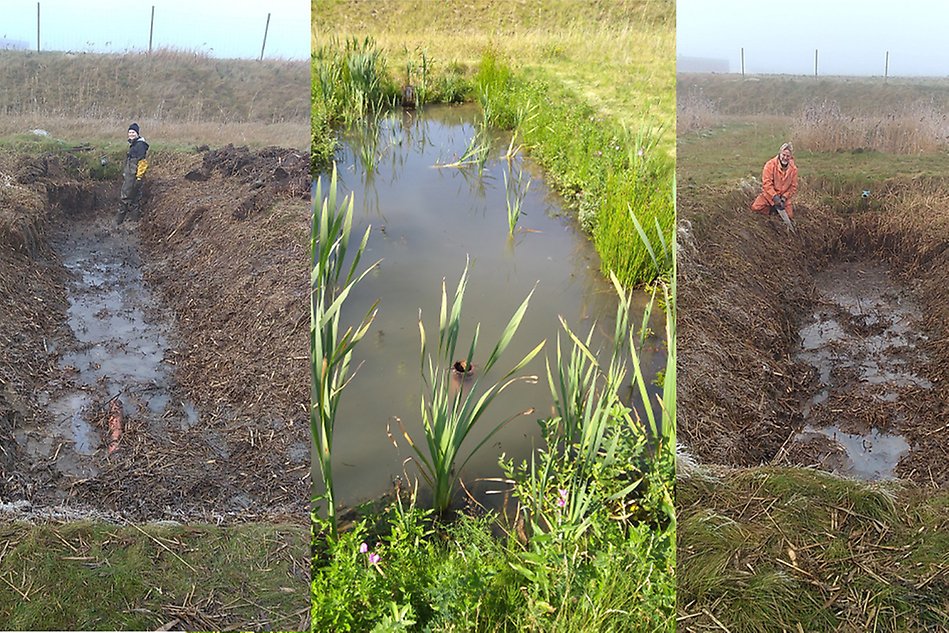Optimizing future wetlands for the provision of multiple ecosystem services
In a future, unstable climate with frequent extreme weather events, the wetland ecosystem service water retention will increase in societal relevance, especially in regions where rainfall is already intermittent and droughts increase in frequency. It is thus imperative to design wetlands for high water retention.
The generated knowledge from the project is relevant to preserving current and future wetland ecosystem services, and thus increases Sweden’s future sustainability and resilience to climate change.

Winter in the wetlands.
We need to understand how water retention can be maximised without affecting other vital ecosystems, such as water purification. In the project we therefor aim to clarify how hydrological regime and optimized water retention in wetlands may affect nutrient removal, and to give recommendations on wetland design and restoration for multi-functionality in a future climate.
In order to ensure versatile wetland function also under future climate scenarios, the project aims to:
- Investigate how wetlands optimized for high water retention function in terms of nutrient removal.
- Investigate the underlying mechanisms driving both ecosystem services under varying climate scenarios.
- Give recommendation on wetland designs that optimize both these ecosystem services, water retention and water purification.
By combining analyses of empirical data from large wetlands across geographical regions, experimental wetlands and literature we will be able to develop a best practice guide for wetland design to help prioritize where and how – according to their geographical location – wetlands should be implemented for optimized wetland multifunctionality.
Our proposed research will aid stakeholders to enhance water retention at the same time as water purification. The generated knowledge from the project is relevant to preserving current and future wetland ecosystem services, and thus increases Sweden’s future sustainability and resilience to climate change.

Project period
September 2020–May 2024
Participants
- Antonia Liess, Senior Lecturer
- Stefan Weisner, Senior Professor
- Per Magnus Ehde, Research Engineer
- Josefin Nilsson, PhD student
- John Strand, Hushållningssällskapet Halland External link.
Financing
The project is financed by Swedish Environmental Protection Agency External link.

The work in the wetlands has started. Here you see Stefan Weisner and Josefin Nilsson restoring the overgrown wetlands to a standardized volume. Pictures taken on the 27th of November 2020 (c) Antonia Liess.

